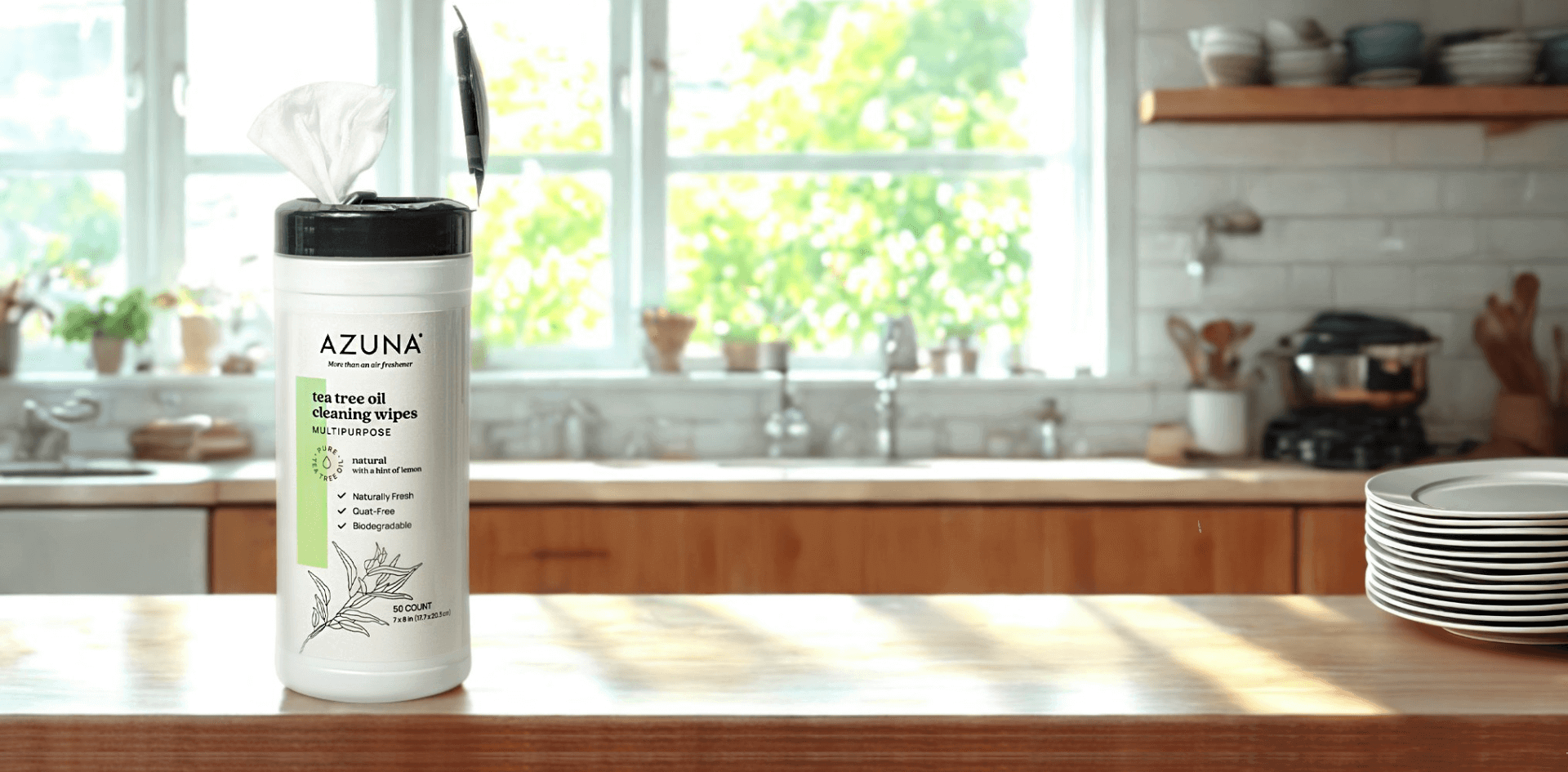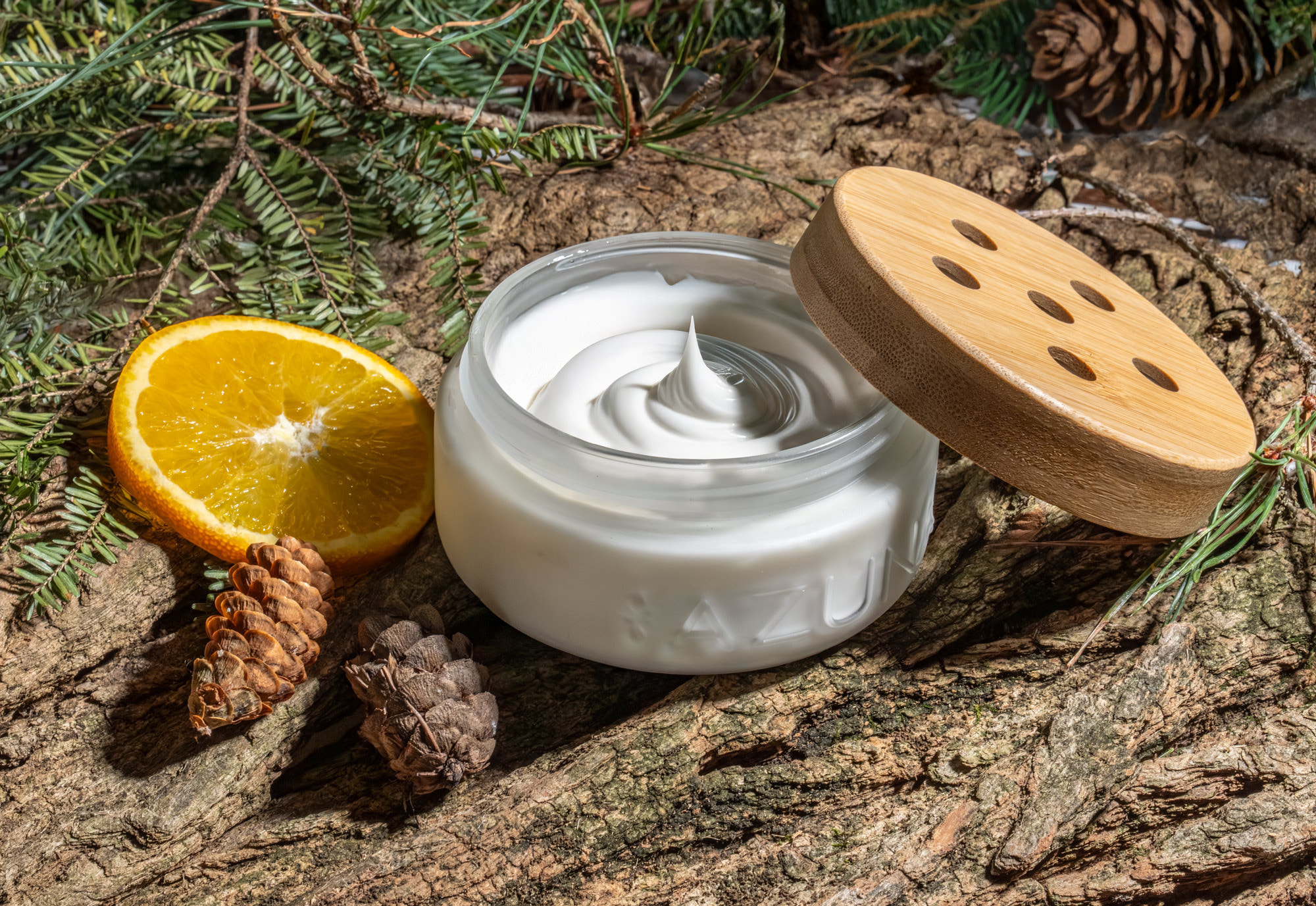Few things disrupt the comfort of home like unpleasant, lingering kitchen odors. Figuring out how to remove cooking smells can be frustrating—especially when those scents settle into fabrics and stubbornly hang in the air.
The good news? A simple, strategic approach works best: clean smart and pair it with a naturally fresh odor eliminator that truly makes a difference.
In this article, we’re breaking down why kitchen odors tend to stick around, sharing proven cleaning tips, and discussing why natural air fresheners can help keep your home smelling fresh and inviting.
How To Remove Cooking Odors From Your Home
1. Ventilate And Use Your Exhaust Fan
Ventilation isn’t just helpful, it’s essential. When you cook, especially with strong-smelling ingredients like garlic, onions, or spices, small organic particles begin settling into fabrics, walls, and other nearby surfaces.
Running your range hood or exhaust fan helps pull those particles out of circulation. For even better results, crack open a window or door to create a cross breeze. This keeps the air moving and prevents odors from going stagnant.
2. Clean Grease And Residue Immediately
Grease acts like a magnet for odors. It traps airborne particles and lets them sit, which means your stovetop or backsplash might still be releasing smells hours after dinner is done.
Wipe down surfaces right after cooking, while everything is still warm (but not hot). We recommend using a natural, non-toxic cleaner that cuts through grease without leaving behind any harsh chemical residue.
Pay close attention to areas around burners, the wall behind the stove, and even the floor near your cooking space. Cleaning up right away keeps your home fresher in the long run.
3. Refresh Sink And Disposal
Odors love to hide in kitchen sinks and garbage disposals. Food scraps, grease, and moisture create a breeding ground for bad smells.
Rinse the sink thoroughly after each use, and don’t forget about the drain. If you’re not sure how to eliminate odors from your drain, we have a comprehensive guide here. But it's always best to start with pouring hot water down it regularly to help flush out any buildup. Scrub around the edges and inside the drain with a biodegradable cleaner and gentle scrub brush.
To remove odors from your garbage disposal, run it for thirty seconds with hot water. From our experience, even the cleanest kitchens can smell if this step is skipped.
4. Deep Clean Hidden Trouble Spots
Some of the most stubborn cooking odors come from places we rarely think to clean. Microwaves, oven walls, fridge door seals, cabinet knobs, and even light switches can all collect residue over time.
Once a week, take 15 minutes to wipe these areas down with a damp cloth and a gentle cleaner. Check for hidden spills, splatters, or old food particles. When used on a microfiber cloth, our odor-eliminating and cleaning sprays are a great, non-toxic way to refresh surfaces.
5. Use A Natural Air Freshener
Cleaning and ventilation are powerful, but to keep your home consistently fresh, you need something that works in the background. That’s where natural air fresheners come in.
Unlike heavily-fragranced sprays that just cover up smells, plant-powered air fresheners use neutralize odors at the source. That makes them safer for your family and better for the environment.
Our kitchen odor eliminators use a clean base of pure tea tree oil to eliminate odors from bacteria, mildew, and more at the source. Simply place near your cooking space and let it work for up to three months without interruption.
6. Wash Fabric Surfaces Regularly
Fabrics are notorious for holding on to cooking smells. Curtains, rugs, dish towels, and upholstered chairs can all soak up odors over time.
Make it a habit to wash these items regularly, at least once a month. Use a fragrance-free or naturally scented laundry detergent to keep things fresh without adding artificial perfumes.
Still fighting tough odors? Our LaundryFresh Dryer Ball kit is a more natural way to eliminate those smells: four pure wool dryer balls and a plant-powered freshening spray.
7. Empty The Trash And Compost Promptly
Even after taking out the trash, residual smells can linger if bins aren’t cleaned. Trash and compost bins collect food residue that continues to emit odor long after the food is gone.
We recommend emptying them daily if you cook often and giving the bins a deep clean every few days. Use a plant-based disinfectant to scrub the inside and around the lid. Let them air-dry before replacing the liner.
8. Replace Or Clean Filters Frequently
If your kitchen has a range hood or air purifier, make sure to clean or replace the filters as recommended. Filters clogged with grease and dust not only stop working efficiently, but they can also circulate odors. Check your filter maintenance schedule and stick to it.
Why Does Your Kitchen Hold Smells?
Cooking releases airborne particles that cling to grease, fabrics, and porous surfaces. Once they're in your air, they're likely to settle into appliances, upholstery, and even the walls. Without proper cleaning and air circulation, they linger long after the food is gone.







